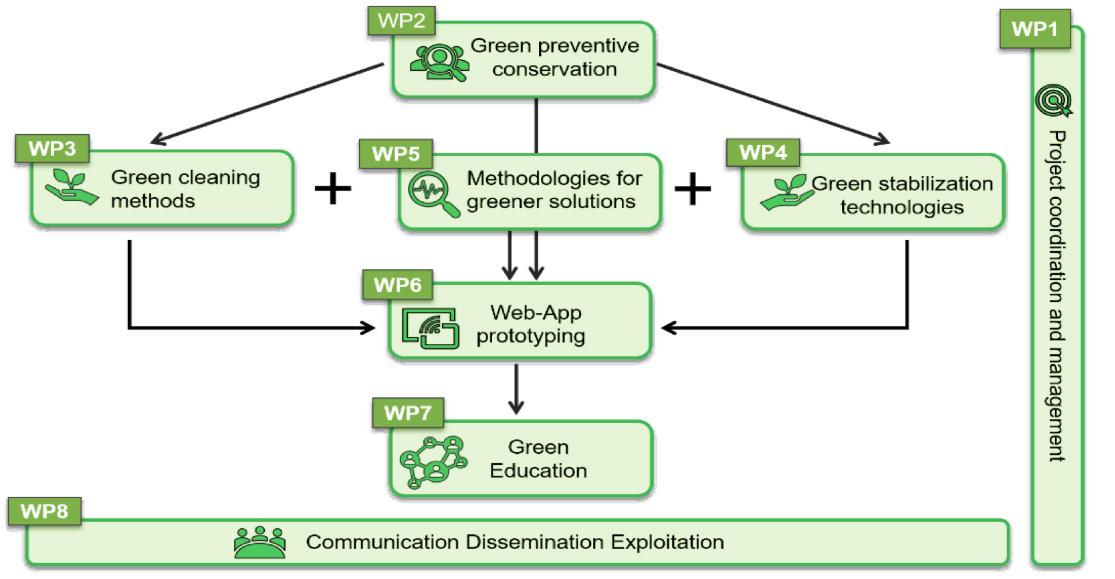Work Packages

Project coordination and management
(WP1 - Led by UvA)
To ensure efficient management of GoGreen through the following activities: (1) Establishment of the management infrastructure for efficient and constant monitoring and operation of the day-to-day project activities under contractual terms; (2) Efficient coordination of the integration of all the work packages using an up-to-date communication infrastructure in a collaborative environment; (3) Handling of risks and contingencies; (4) Efficient communication inside and outside the consortium, especially representation of the project at high-level events and meetings; (5) Communication and consultation with the European Commission on contractual and financial matters; (6) Monitoring and control of the financial budget and corresponding resource usage, including distribution of funds to consortium partners; (7) Ensuring that legal and ethical issues are properly dealt with.
Green preventive conservation
(wp2 - led by eht)
Reducing our Carbon Footprint in Preventive Conservation by Improved Insight into Material Vulnerability. GoGreen will develop a new series of damage functions to aid in decision-making for acceptable climates, thereby avoiding excessive environmental control and energy waste. A conservation decision-making model that includes Green Thinking (GoGreen-DMM). GoGreen will unite insights derived across the project to embed green thinking across the entire profession.
Green cleaning methods
(wp3 - led by unibo)
Development of new green materials for remedial conservation. GoGreen will focus on cleaning and stabilisation for developing novel green remedial conservation materials since these are the most common interventions on paintings, glass/ceramics and metals, and currently often rely on unsustainable methods and materials.
green stabilization technologies
(wp4 - led by Hes-so)
Development of new green materials for remedial conservation. GoGreen will focus on cleaning and stabilisation for developing novel green remedial conservation materials since these are the most common interventions on paintings, glass/ceramics and metals, and currently often rely on unsustainable methods and materials.
Methodologies for greener solutions
(wp5 - led by ens Paris-saclay)
Innovative assessment of GoGreen treatments. GoGreen will develop strategies to evaluate products and treatments in terms of efficiency, working properties and evolution over time, health and environmental impact.
Web-App prototyping
(Wp6 - led by IIT)
New web-app to support green conservation decisions (GoGreen DSA). GoGreen will create an innovative digital web-app, aggregating essential information on materials and techniques that is currently sparse, fragmented, partially or hardly accessible to the public (i.e. stored in subscription journals, repositories, databases), thus facilitating its availability to conservators and encouraging their transformation to a greener profession.
Green education
(wp7 - led by Crt)
Strengthening the Profession through Education. GoGreen will address gaps in education by training educators, and by providing freely accessible educational modules which can be adopted in training programmes internationally.
Communication Dissemination Exploitation
(WP8 - Led by UvA)
Greener conservation methodologies, techniques, materials, protocols, tools, and solutions can only be implemented into conservation if conservators know about them and have reliable data to support their efficacy and suitability. One current bottleneck with “green” conservation is the lack of a definition of what “green” is, which leads to greenwashing. Additionally, a lack of reliable information about the materials that are available and their application for conservation leaves conservators relying on techniques and methods that are known to be environmentally damaging. Conservators look for information that comes from reliable sources (membership organizations/associations, academic publications) and from each other (case studies and conferences). To adapt green strategies, effective dissemination, exploitation, and long-term thinking are necessary.
